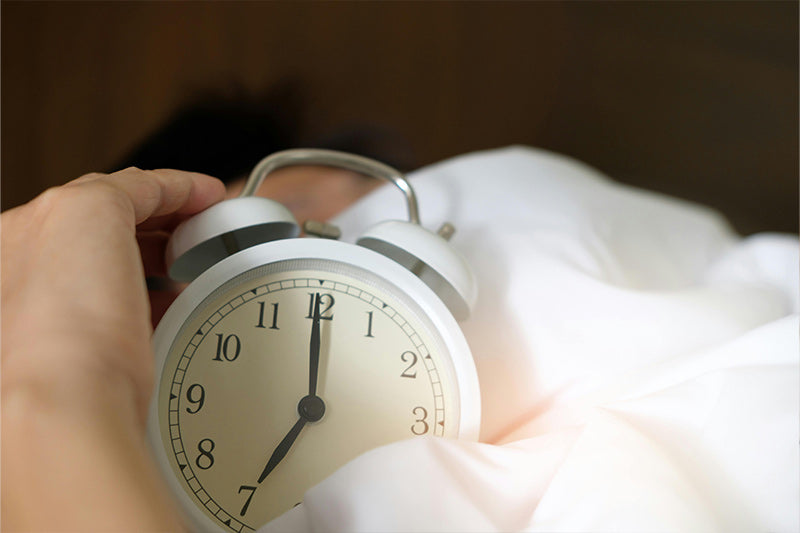
How does jet lag occur?
Traveling across different time zones presents significant challenges due to the circadian nature of the organism. Especially if you are heading east. When traveling in this direction to the east, one shortens the day, when traveling to the west it lengthens. A shorter day then causes problems with falling asleep.
Upon arrival, the body needs to adapt to the new regime. It has established a new routine. The same eating times, activities as at home, only at a new time. Diet is especially important for the rapid adaptation of the organism to the new time zone. Eating according to the new time zone is the best way to reset your "internal clock".
Try to imagine that you are on a night flight. How to prepare, what to leave out and what, on the contrary, can help you cope with jet lag more easily?
Before departure
In order for the organism's adaptation to the new zone to go as smoothly as possible, it is necessary to skip all stimulants in the last 24 hours before the flight and avoid them for at least 48 hours after the flight. This applies to coffee, teas containing caffeine or guarana. Make sure you are properly hydrated before your flight.
On the contrary, what should not be missed is the dinner just before the flight. It will be the last meal for the next few hours. The ideal choice is nutritionally quality food. It should include plenty of meat, complex carbohydrates such as rice, potatoes, pasta, quinoa and fresh vegetables. Fast food at the airport is a tempting option, but the food won't fill you up enough and you could be hungry on the plane.
18:30 Put on glasses against blue light!
The earlier, the better you will sleep on the plane.
Airplane flight
Eating during the flight is an unnecessary burden on the body's circadian rhythm. For example, an eight-hour flight with a departure after 19:00 should ideally be managed without food. This makes sense, because in the current time zone, you probably won't be eating a sandwich at two in the morning either.
Just a plane flight is an unpleasant situation for the body. Dry filtered air, airborne pathogens, altitude dehydration and later jet lag. There is no need to add poor quality airplane food.
What to pack on the plane?
✅ Lots of liquids, at least 2 l, ideally with admixtures of minerals and electrolytes
✅ Sleeping mask
✅ Earplugs or noise canceling headphones
✅ Pillow, neck pillow, anything to support your head
Overnight travel brings the opportunity to use the flight to sleep. It would be advisable to sleep for at least the first half of the flight. In the second half of the flight, if you don't sleep, we recommend getting your heart pumping a little and getting your circulation going. You probably don't need to do push-ups in the alley, but a few squats on the toilet will work just the same. And don't forget about continuous stretching during the session.
Did you know that a longer stay on a plane can start inflammatory processes in the body? This is because being disconnected from the Earth's magnetic field will increase oxidative stress. So pack some antioxidants, for example vitamin C, on the plane.
Upon arrival
You must be hungry. And that's okay. It's just good to reach for quality again. Avoid sweets and other temptations that make you eat more unhealthy things. Again, it's a good idea to add fluids. A little exercise will also help. A faster walk or a short run if you are a jogging enthusiast. A cold shower, or at least lukewarm, and a meal with a higher amount of complex carbohydrates, good quality protein and low fat.
If you are flying from the Czech Republic to Japan, for example, the need for sleep on the first night probably won't come, because you won't be home until late in the afternoon. So how could such a sample evening look like:
✅ At 19:30 new time at the latest, put on glasses against blue light.
✅ Go to sleep around 11:00 p.m.
✅ About 30 minutes before going to bed, you can take melatonin to start its proper production.
✅ GABA in a dose of about 500 mg or the Sleep product, a unique combination of natural substances for faster falling asleep and better sleep, will also help with falling asleep.
✅ A sleeping mask and earplugs will ensure darkness and silence.
The first morning and the first hour after waking up will also be very important! You might wake up a little groggy. And that's okay. It's because of the melatonin level. It is important to adjust the circadian clock:
✅ Replenish minerals as soon as possible after waking up. A pinch of salt will help with this. Also creatine or glycine.
✅ Expose yourself to daylight. Take, for example, a 15-minute walk outside.
✅ Cold shower for 2-3 minutes.
✅ Breakfast, preferably without coffee.
Substances that will help manage jet lag
GABA
Gamma-aminobutyric acid is the main inhibitory neurotransmitter in the central nervous system. It is well known that GABA promotes relaxation, falling asleep and sleep by activating GABA receptors in the brain. These are involved in reducing the excitability of nerve signals. GABA is able to induce relaxation, reduce anxiety and strengthen immunity in stressful conditions.
CBD
Phytocannabinoids such as CBD bind to cannabinoid receptors and affect the endocannabinoid system in the human body. Their action promotes relaxation and relaxation of the central nervous system, helps suppress pain and the perception of negative emotions. At the same time, it is a valid helper for athletes in states of great mental strain, such as competitions and demanding training periods.
Sleep
The combination of natural substances will calm you down and prepare you for a natural sleep. It has mild sedative effects and will allow you to fall asleep faster, even outside of your bed.


